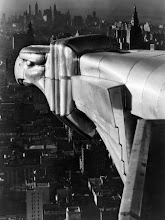Sitting upon Riverside Drive at 140th Street is an arresting sight: a large, gothic, classically designed building, once a Catholic Girls’ School, now owned by the Fortune Society. It is nicknamed “The Castle” and is a refuge for formerly incarcerated people. Of the 700 or so boarders who have drifted in and out of it, four noteworthy ones, in conjunction with director David Rothenberg, have began telling their woeful stories of trauma and crime at the New World Stages. On the face of it, a production with only four chairs as a set, no traditional dramatic structure and a cast of former criminals locked in a basement with an unwitting audience would not seem too successful; shockingly enough, it works.
The quartet—Cassimo Torres, Kenneth Harrigan, Vilma Otriz Donovan, and Angel Ramos—speaks directly to the audience, weaving their personal stories in short, succinct bursts of monologue together to form a larger narrative that addresses not only the successes and failures of the prison system in the United States, but of the conflict that arises from societal pressure on personal choices. It is interesting for us to see how Ms. Ortiz Donovan, a Long Island suburbia native, and Mr. Torres, a homeless junkie, could end up in the same safe haven for ex-convicts. Ms. Ortiz Donovan, a self-conscious girl, was seeking approval from her peers, all of which came to a head when she became a user and dealer of cocaine. Drugs were Mr. Torres’s weakness as well; he graduated from the triad of alcohol, weed and acid to crack-cocaine and heroin in only three years. Coming from a broken home, he was subjected to abuse in the centers he and his brother were shipped to after his mother was admitted to the hospital. In spite of their very different upbringings, the two failed to resist to the temptations around them, and ended up behind bars.
With drug abuse as the common thread of their convictions, it’s fascinating to see how people from different walks of life could assume the unenviable position of inmate in the New York State Prison system. Ms. Ortiz Donovan repeatedly makes the statement that her choices solely contributed to her incarceration, while the men are less eager to blame themselves. Mr. Harrigan, for example, repeatedly paints the grim picture of his life as one of the factors that landed him in the big house. His disturbing image of a woman hanging from a telephone pole just outside of his home is but one example of the terrible environment in which he was reared. So where can one assign responsibility of fault for delinquency? When can we draw the distinction between offenses stemming from personal depravation to those influenced by peer pressure? One crime, one indiscretion by a person is what is seen by a court, by a judge, but said person’s actions are never entirely his own. Wouldn’t Mr. Torres’s absentee father hold some iota of blame in his drug crimes, considering the (Ann Coulteresque) statistic that fatherless children are apparently 10 times more likely to abuse chemical substances? But he is not punished, only Mr. Torres is. These are the questions that the audience is provoked into contemplating during a performance of “The Castle”, moving us all into some sweep of emotional response.
Each member of the ensemble was moved to tears at one point during their personal accounts, legitimate tears of pride, sadness and strength that could outweigh any Oscar winner’s performance, if for no other reason than because they were real. I found it refreshing to see such a genuine display of emotion on stage, certainly not because I wish that all actors would abandon their craft (what would become of the theatre‽), but it is, admittedly, a delight to see such awe-inspiring performances that are unequivocally rooted in the sprawl of real life rather than weeks of rehearsals. Of course, that’s not to say some additional prepping would have been a sensible action in this production; each of the performers committed some impropriety during the play, ranging from late delivery to trying too hard to elicit a laugh from the audience. These missteps are easily overlooked, however, when considering the overall effect the play can have on a person.
The apparent success of “The Castle” may be rooted in the deeply moving struggles of the quartet, the discouraging realization that prisoners have souls, and that we are all at risk of penalization. Or it may simply be luck. Whatever the explanation may be, this piece of documentary theatre inspires and enlightens, even when it takes itself too seriously, or shows its rough edges.


No comments:
Post a Comment